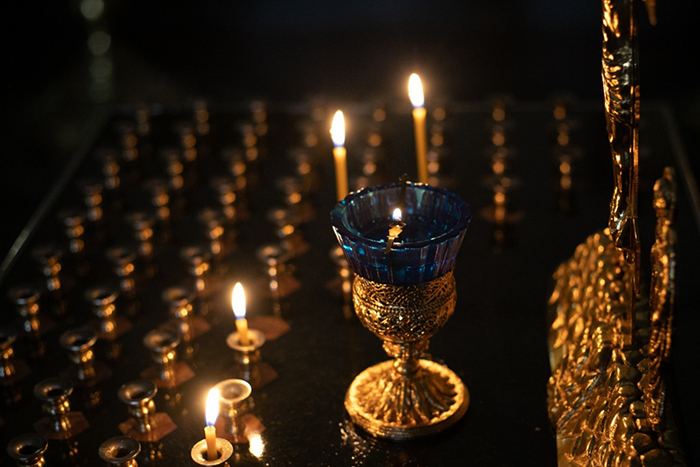
In my opinion, the experiences and complaints about the state in which sin literally haunts you and you can’t get rid of it are often associated with the end of the neophyte period. When you become a Christian, at first you feel as if you are flying on wings. The neophyte absorbs everything like a sponge, and the entire neophyte period feels like a continuous series of overcoming and joyful discoveries. Then at some point the neophyte faces a slowdown, as if he is under pressure of some kind. This can be accompanied by a feeling of coldness in faith, and a terrible feeling of “getting used” to the sacred as if it were nothing out of the ordinary, and the burden of new questions and doubts. What used to be exciting and fascinating — prayer life, divine service — is suddenly put into question and felt as a routine. The person perceives it as a crisis of faith and, like the author of a letter to the editorial office of Foma magazine, starts to panic. “What is wrong with me? Am I really losing my faith and turning away from God?”
In fact, the first thing to understand is that crisis is a certain stage of spiritual life that corresponds to a certain spiritual age. It is a rare occurrence when such phases do not go hand in hand with one’s spiritual life. You just need to understand that such a crisis brings some spiritual benefit for you, enhances your knowledge, strengthens your skills, makes you stronger, and helps you move forward in your church life, as well as in your relationship with God. You should not panic and be discouraged in any way.
It is important to know that despondency or, in terms of psychology, depression from the feeling that sins have crushed you, that you can’t handle yourself with the ease that you used to have — this can mean that you clearly lack spiritual guidance. You face new phenomena in your spiritual life, which you don’t have any experience in dealing with yet, and you really need the advice of someone who has already gone through this stage and knows how to act in this situation. Of course, it is not so easy to find a spiritual advisor. In any case, you need to look for people with spiritual experience, seek friendship with other believers who have a deeper and more serious background of spiritual life, life in the Church.
Another very effective inoculation against depression (and depression here, in the situation that we are dealing with, is a very dangerous enemy): do not think about whether you are a good Christian or not at this point. There are no better and worse people before God. That is why, when thinking about your sins, it is very important not to assume “God’s stance” and turn into a judge for yourself, biting yourself. Note what the Apostle Paul writes:
But with me it is a very small thing that I should be judged of you, or of man’s judgment: yea, I judge not mine own self. For I know nothing by myself; yet am I not hereby justified: but he that judgeth me is the Lord. (1 Cor. 4:3-4).
Comparing yourself with other people, and even with saints, isn’t helpful. It only makes you hate yourself.
Finally, when thinking about a sin that you cannot overcome, you should try to figure out whether the sin is an independent and arbitrary event, or is caused by some other reason. You have to learn to know yourself. Sometimes certain passions or vices may be caused by factors that are not mystical and puzzling, but are related to our health, the mismanagement of relations at work, family conflicts, everyday circumstances of our lives, etc. We often do not consider this connection. For example, one of my acquaintances was constantly worried about her absent-mindedness: she was forgetting to keep her promises, was constantly late, and so on.
Then one day she suddenly found out that she had a serious disease of the endocrine system. The woman started to receive treatment, and her focus and commitment returned to her. She stopped forgetting her promises and was no longer late. So it turned out that it was not her fault, it was just her illness. It is important to understand that all things are interconnected, and one can trigger another.
One more important point: it is crucial to set the right emphases in spiritual life. Being free from all sins is not an end in itself. The central goal of spiritual life is to develop a relationship with God, the communion with God. As you gain spiritual experience, you can overcome passions and sins. Therefore, focus on this most important goal: to be with God.
Furthermore, do not try to overcome all your sins and passions at once. Find the easiest sin that you can easily defeat — the passion that you can get rid of — and defeat it. The experience of defeating something easy will make you confident of your strength. Next, you have to take on something else but it has to be within your power. Do what you can do here and now. Can you get up early so you’re not late for work? Great! Will getting up a little early make it possible for you to read at least one prayer out of twelve? Excellent! Read this one prayer, and so on. Move step by step. Don’t be discouraged.
Translated by The Catalogue of Good Deeds
Source: https://foma.ru/nachat-s-samogo-legkogo.html



